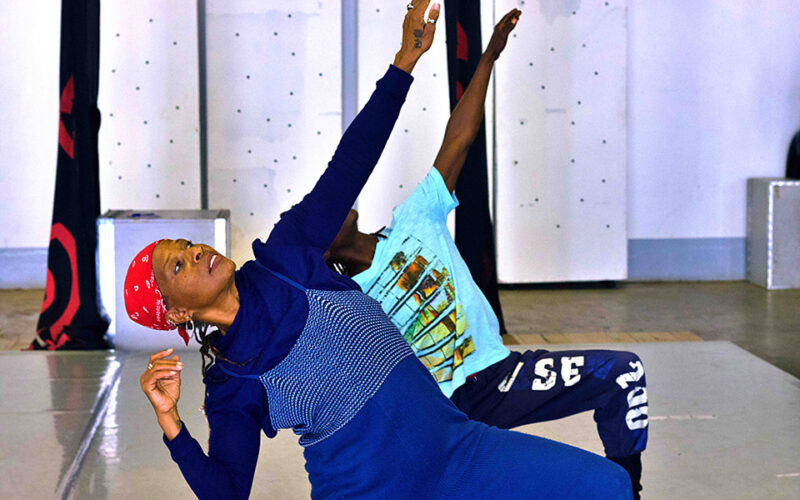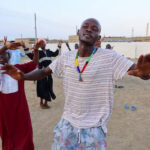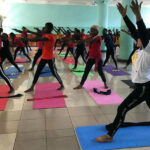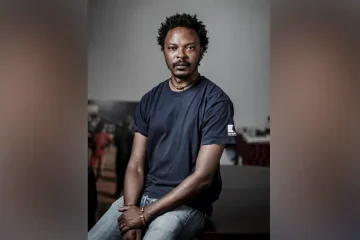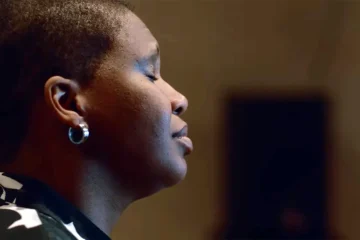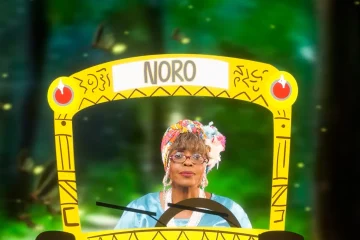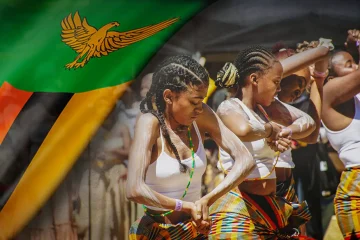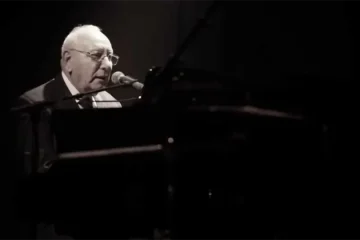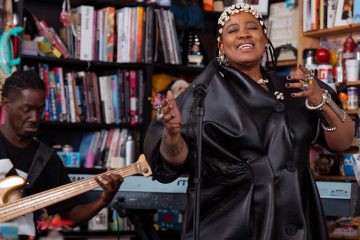TATENDA KANENGONI
CLASSICAL ballet instructor Soukaina Marie-Laure Edom is determined to give women space at the heart of African dance. Since 2014 she has run the only institute offering professional dance training in Zimbabwe, and her work is beginning to have a profound effect on dance right across the continent.
AfriKera Dance Theatre Hub is situated in the very heart of Harare, a throbbing nexus of sound and energy. From soft classical ballet melodies to rhythmic African drums, sound pours out in a steady stream and there is seldom a moment when dance students are not utilising the space to take them closer to their dreams.
“Dance is life,” explained founder and artistic director, Soukaina Marie-Laure Edom.
Seven years ago, Edom, a professional dancer, founded AfriKera, Zimbabwe’s only independent performing arts institution offering a three-year professional dance training program targeting the youth.
While Zimbabwe had several dance studios offering space for dancers to rehearse and create it did not have a professional dance program tailored to encompass the rich Zimbabwean culture and traditional dance movements in the modern dance curriculum.
“I figured it would be good if I develop my own outlet. It needed to be more ‘us’, and not copy what’s in Europe. I think that’s what also attracts people even from abroad because they can see that it’s a program that is tailored for Zimbabweans.” she adds.
The building housing the institution was regenerated from a department store founded by the Meikle brothers in the 19th century, into a multi-level studio and workspace serving as the perfect creative outlet for AfriKera.
Edom – who is of Guadeloupean descent – relocated to Zimbabwe from the United States in August 1996 with her Zimbabwean husband and two sons. She quickly meshed with the local dance fraternity. Having watched numerous classical dance showcases across the pond, she yearned for performances that embodied African cultures.
Edom recalls one of the first local performances she watched was by dance troupe, Tumbuka.
“There was a piece called And Rwanda, which was more Afrocentric, which is better, because you could see that the dancers were more at ease in it, rather than copy modern classical, neoclassical movements.” she said
Through networking with a few dance patrons at the event, she was asked to stand in for the Tumbuka director who was away for a two-month period. After completing the stint, she was approached to head the Dance Foundation Course (DFC) at the National Ballet, taking over from the outgoing director.
“I developed the DFC into a three-year program. It was part-time from 9 to 1pm for two years and my argument was how you can train dancers for two years part-time, so I said it has to be three years full time because that’s what I was exposed to, and little by little I developed it like that for 18 years,” she said
Edom nurtured numerous notable Zimbabwean dancers, but she felt the urge to address the underrepresentation of black women within the local dance arena.
“In Zimbabwe you have two dynamics, in the black community there are more boys dancing than girls, and in the white community, there are more girls dancing than boys,” she compares.
She developed Essence of Women with her friend Rena Robinson-Steiner in 1999 to cover this gap.
“Essence of Women was born because I wanted to address this divide of not seeing black women like me dancing in contemporary, modern dance and I co-founded it with a friend,” she says.
The Essence of Women dance ensemble has worked with at least 20 women and 10 performing artists comprising musicians and poets to put on multidisciplinary showcases at events including the Harare International Festival of the Arts, Urbanart Festival in Ivory Coast and the All Africa Dance Festival in Kenya.
Dancer and choreographer Chaleen Chimara who performed at the Urbanart Festival in Ivory Coast under Essence of Women attests to how the program has impacted her as a performer.
“I would say in Zimbabwe, Soukaina is the mother of dance. She enrolled me under the Essence of Women program while I was still a student and mentored me to become a professional dancer and she helped push my own creations…She has changed so many lives.”
Catherine Douglas, another member of Essence of Women concurs.
“Women are usually overlooked when it comes to dance…Sometimes as a woman when you are married, you tend to abandon your craft to focus on your family. Soukaina encouraged us to push ourselves,” says Douglas.
Essence of Women was just the tip of the iceberg in terms of the gaps Edom sought to fill. Zimbabwe had several dance studios offering space for dancers to rehearse and recreate but did not have a professional dance program tailored to encompass the rich Zimbabwean culture and traditional dance movements in the modern dance curriculum.
“I figured it would be good if I develop my own outlet. It needed to be more ‘us’, and not copy what’s in Europe. I think that’s what also attracts people even from abroad because they can see that it’s a program that is tailored for Zimbabweans,” she adds.
Edom took the leap in 2014 with a team that consisted of her former students to serve as teachers at the institution and AfriKera Arts Trust became operational in 2015.
“I have a good team of teachers…at least 90 per cent of them were former students of mine. I try to reabsorb, create jobs, create projects, collaborations and everything,” she said
The team moved into a makeshift structure that propelled them to the independence they were after, but it was not ideal.
“It was kind of semi-permanent, tented but the base was concrete. It was not very adequate when it was raining or when there was wind.”
In 2017, The Meikles Foundation whom Edom had worked with prior, offered AfriKera space in one of their buildings, a defunct department store. The AfriKera team secured financial assistance from cultural cooperation organization Africalia, and redeveloped the space into two dance studios, a mezzanine section serving as a library, open plan office and meeting place and an administrative office.
The space took form as a fully-fledged holistic dance institution.
“The syllabus is holistic meaning that yes, the focus is dance, but they [students] also have English because they have to read contracts, be able to write synopsis, concepts for their choreography. Anatomy because they have to learn the body, Accounting, because they have to learn how to manage their finances, voice (music), percussion, and physical theatre.” Edom said
Dance and physical theatre have emerged as one of the most marketable skill sets for “AfriKerians”, as the graduates have come to be known.
Tatenda Chabarwa, an AfriKeria alumni, was recently hired as a movement consultant for ‘The Good Minister from Kunyarara,’ a theatrical production performed in Harare and written by June Carryl, one of the writers of Netflix original series, Mindhunter. Chabarwa credits his versatility to the foundation he received at AfriKera.
“When I’m working with actors as a movement consultant, I know that I am working with actors not dancers, so there’s a different approach.” Chabarwa says “AfriKera made me the person that I am today… even the research I carry out for my pieces is broad because of my work with AfriKera.”
To date, with support from Africalia, AfriKera has gone through two student intakes, with the third cohort graduating this year. Each class comprises around 15 students. AfriKera still runs the Essence of Women program, as well as the AfriKera Dance Theatre, the professional arm of which serves to promote and connect AfriKera alumni with various professional opportunities and the AfriKera collective, which is the choreographic arm, also comprises of AfriKera Alumni.
Edom has high hopes for the institution including having its dance training certificate accredited as a diploma to allow the graduates to teach in schools.
A recent development has increased the likelihood for this happening.
“Thank God for our consultant, we just signed an MOU with the Creative Media and Communications department of the University of Zimbabwe in May and that’s good because it can give opportunities for graduate students of AfriKera who have their A-level to do their bachelor degree in two years instead of four.” said Edom
Edom turned 60 last year and completed a master’s degree in Art and Culture management. She is excited to follow in the footsteps of acclaimed dancer and choreographer Alvin Ailey who established the Alvin Ailey American Dance Theatre to express the versatility of the African American experience through dance.
“Life starts at 60. I need to solidify AfriKera so that hopefully someone can take over. Like Alvin Ailey, the founder and artistic director passed away in the ‘80s and we are in 2021, and it still exists.”
[origincode_photo_gallery_wp id=”30″]

